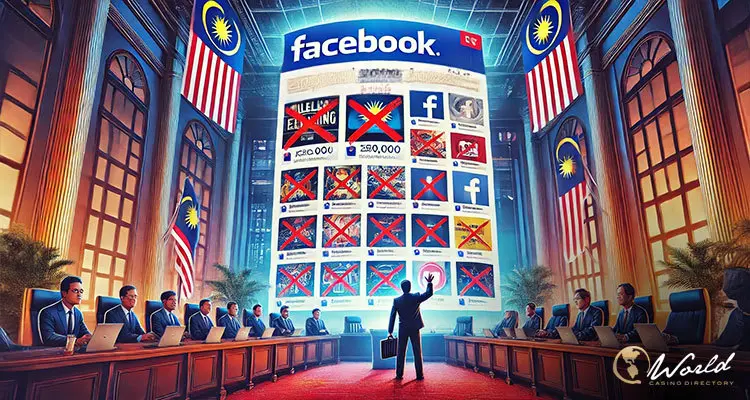In its continuous effort to safeguard its citizens from digital threats, the Malaysian Communications and Multimedia Commission (MCMC) has taken a significant step by requesting the removal of a staggering 249,268 pieces of content from Facebook this year. This initiative highlights the government’s commitment to combatting online gambling and scams that have become increasingly pervasive on social media platforms.
Scope of the issue:
Communications Minister Fahmi Fadzil, speaking during the debate on the Supply Bill 2025 for his ministry, detailed that the vast majority of these removal requests—91.6%—were directly related to online gambling and scams. Specifically, the MCMC identified 172,072 items linked to online gambling and 56,136 related to various fraudulent schemes. This proactive measure by the MCMC showcases the government’s resolve to clamp down on these illicit activities that not only breach local laws but also pose significant financial risks to Malaysians.
“MCMC does not have the authority (to direct social media platforms to remove content). We can only request that the content be taken down, but it is up to the platform to decide,” he commented, as reported by Bernama.
During his address in the Dewan Rakyat, Fahmi pointed out the regulatory challenges faced by Malaysian authorities. He emphasized that the MCMC does not possess the power to enforce content removal directly but can only request social media platforms like Facebook to comply. This distinction highlights the complexities of regulating global digital platforms within the confines of national jurisdiction.
Fahmi also disclosed the economic ramifications of these scams, noting that Malaysians lost a substantial RM432 million to deceptive practices on Facebook last year alone. In a revealing statistic, he stated that Facebook generated revenues amounting to RM2.5 billion from Malaysia, with a significant portion coming from advertisements, some of which were linked to online investment scams.
Government’s approach to content removal:
Addressing concerns about the alleged removal of critical content, Fahmi clarified the government’s stance and process. He explained that the MCMC acts as a mediator that forwards public complaints to the social media platforms, which then decide on the removal of content based on their community standards. He cited an example discussed by the Home Minister, involving false claims about citizenship, which was duly recognized as slanderous by the platform and removed.
Looking ahead, Fahmi unveiled an innovative approach to further combat the spread of misinformation—a WhatsApp chatbot service set to launch in January. Fahmi explained: “This will enable WhatsApp users to forward messages they suspect to be false or contain questionable elements for verification through artificial intelligence (AI) technology.”
By addressing these threats head-on and utilizing advanced technology to combat misinformation, Malaysia is fortifying its digital governance and ensuring a safer online environment for all its citizens.


